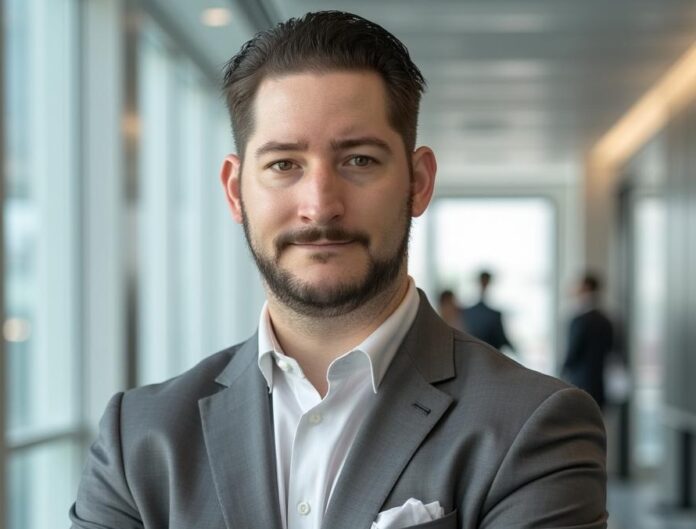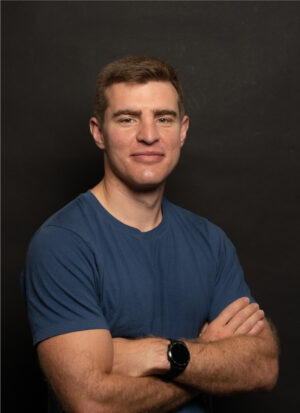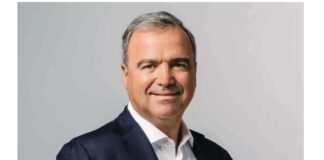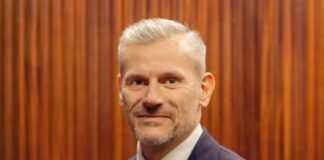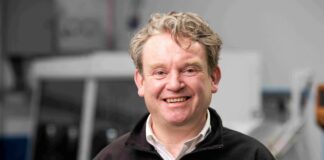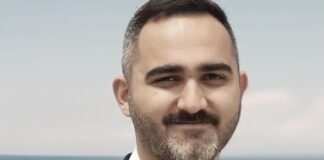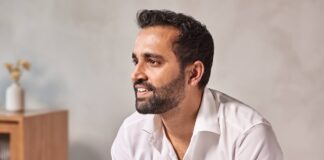PureWay Compliance provides technology-driven solutions for safe, compliant, and sustainable medical waste disposal—designed especially for smaller healthcare providers and at-home patients
Jeff, you are a serial founder with nearly two decades of experience across healthcare and tech. What inspired you to start PureWay Compliance?
From the start, we set out to solve one of the biggest environmental challenges in healthcare: medical waste, especially for “small quantity generators” like dental practices, vet clinics, home health agencies, pharmacies, and even at-home patients. These customers don’t require a monthly truck route, unlike large hospitals. They need education, flexibility, and reliable tools.
Most competitors in our space are logistics companies. We are a software-driven, education-first, customer-focused solution provider. We invest heavily in training our team to consult, not just sell. And we help clients understand their regulatory obligations and develop more effective waste and compliance programs. We are not just picking up waste; we are helping them stay safe and stay in business.
What specific gap or inefficiency in the healthcare waste management space did you initially set out to solve?
We recognized that the core inefficiency wasn’t a lack of awareness but a lack of access. Compliant waste disposal was simply not practical or affordable for many healthcare providers, particularly smaller practices and those in remote areas. Around half of providers in the U.S. operate far from traditional hospital-based collection centers. For them, existing options were often too expensive, too complicated, or simply unavailable. As a result, regulated waste was ending up in the trash, not out of neglect but because better solutions didn’t exist.
That is the gap we set out to close. Our mail-back solution was built specifically for these situations. It is simple, cost-effective, and designed for providers without access to large-scale collection. From the start, we refused to take a one-size-fits-all approach. Most companies expect customers to adapt to their systems. We did the opposite. Every provider has different workflows, compliance needs, and sustainability goals. We build around those, not the other way around.
Managing regulated waste and compliance across 200,000 sites sounds incredibly complex. What key strategies allowed PureWay to scale sustainably?
One of the biggest reasons we’ve been able to scale is that we built around complexity rather than avoiding it. From the beginning, we knew that every customer, from a solo dental practice to a pharmaceutical company, would have different workflows and requirements. We didn’t try to force a single model on everyone. Instead, we invested early in building the infrastructure to support flexibility at scale. A major part of that was our software platform, ConnectHub. It centralizes everything from tracking and reporting to regulatory documentation and sustainability metrics. That is what allows us to offer highly customized programs without losing efficiency.
Staying clear on our priorities has been key to our growth. We deliberately did not chase hospitals or large systems. Instead, we focused on the markets that were underserved, such as smaller providers, rural locations, and eventually, patients at home. That clarity helped us scale responsibly while still solving the most urgent gaps in the system.
We also stay extremely close to our customers. Our sales and support teams gather frontline feedback daily. When change happens, we do not wait for the market to react. We initiate conversations, gather insights, and respond quickly.
Can you walk us through how PureWay uses technology to modernize such a traditionally manual and fragmented industry?
We saw early on that most systems in this space were not built to handle the level of customization our clients needed. So we developed our own system called ConnectHub, which now powers the core of our operation.
With ConnectHub, we manage compliance, tracking, reporting, and sustainability data all in one place. For smaller businesses, individual practices, and even consumers, it’s a simple, easy-to-use solution available on a subscription or as-needed basis. It includes everything they need to stay on top of compliance and regulatory requirements without extra effort. For larger organizations, such as pharma companies, we offer highly customized programs that support advanced tracking, reporting, and sustainability data.
Ultimately, what makes it work is that the complexity lives in the backend. What the customer sees is a clean, intuitive system that fits into how they already operate.
The healthcare sector is heavily regulated. What were some of the biggest legal or compliance hurdles you had to overcome early on?
One of the biggest early challenges wasn’t the regulations themselves, but how fragmented and confusing they were for customers. Each state approaches medical waste differently, and the rules often lack consistency or clarity. That creates friction not just for companies like ours, but also for the providers trying to do the right thing.
Take California’s SB212, for example. It requires pharmaceutical manufacturers to educate patients about disposal and offer free solutions. But awareness is still low, and it’s not always clear how that education is being delivered or enforced. When regulations are too complicated or poorly implemented, they tend to backfire. Instead of improving compliance, they lead to confusion and low adoption.
That’s exactly why we built so much of the compliance infrastructure into our business from the start. If we could simplify that complexity for the customer, we knew we’d be solving a major part of the problem.
Your work touches on multiple critical themes—public health, environmental protection, and pharmaceutical takeback programs. How do you balance these different priorities?
These priorities have been part of our mission from the start, and we’ve never really seen them as separate. When we set out to reduce the environmental impact of healthcare waste, we knew it would naturally overlap with protecting public health and supporting pharmaceutical safety.
Whether we’re working with a vet clinic, a dental office, or a pharma company, the goal is the same: protect people, prevent waste from ending up where it shouldn’t, and make compliance as straightforward as possible. For us, balance comes from designing with the full picture in mind.
PureWay’s growth coincides with increasing national awareness of environmental sustainability. How has this shift in public consciousness affected your business?
Sustainability is an increasing focus, especially for our larger pharma and biotech customers. Many have ambitious goals to reach zero-waste operations in the coming decade. To achieve those targets, they will need to manage the full lifecycle of their products, from distribution to end-of-use. That’s where PureWay comes in. We offer a unique take-back solution that includes recycling of the end product, with recovery rates of up to 85% by weight in some cases.
For the end users, the patients at home, sustainability has long been a concern, but awareness of available solutions remains low. We’re actively building education programs through social media and other channels, and the response so far has been overwhelmingly positive.
You’ve launched FDA-approved devices and scaled offshore operations in the past. How have those experiences shaped your approach at PureWay?
At PureWay, we focus on solving real problems for our customers and doing it at scale. If the challenge calls for designing and manufacturing our own FDA-regulated devices, we do it. If it means expanding our distribution network to be closer to the customer and deliver more efficiently, we make it happen. And if the solution requires building custom software in-house, we’ve done that too.
Distribution and compliance are often seen as cost centers. How have you turned them into engines of margin expansion?
We’ve never looked at distribution and compliance as just boxes to check. From the beginning, we built systems that could turn those functions into assets. By developing our own tech infrastructure, like ConnectHub, we automated many resource-heavy processes such as reporting, tracking, and regulatory documentation. That’s what has allowed us to scale efficiently without adding unnecessary costs.
In pharma, especially, we’ve taken what’s traditionally viewed as compliance overhead and turned it into a value-add. Our programs support safe disposal while also giving partners access to real-time data and sustainability reporting, tools that help our partners reduce waste, improve patient adherence, and lower costs elsewhere in their operations.
Studies have shown that patient support programs like our waste collection systems not only improve brand satisfaction but also boost adherence and treatment success, delivering ROI above 100 percent. When done right, compliance becomes a driver of both differentiation and margin expansion.
Looking back at the journey, was there a pivotal moment that truly changed the trajectory of the company?
Reaching the $10 million mark forced us to shift from founder-driven hustle to scalable systems and leadership. We couldn’t just do more of what had worked before. We had to rethink how we hired, managed, and made decisions.
The biggest lesson? Growth requires structure. And structure means letting go of full control. That’s not easy for most founders, but once we made that leap, we unlocked an entirely new level of performance.
How do you foster innovation in a highly regulated environment where risk tolerance is naturally lower?
We experiment constantly. I encourage the team to test ideas at a small scale and then scale what works. We’re not afraid of disruption. Whether it’s implementing new communication tools or integrating AI into our workflow, we try, test, and learn quickly.
Change can be uncomfortable, but if you can articulate a vision and show results, teams buy in. We set the expectation that failure is part of the process. Once a new approach works, we empower the team to take ownership.
What leadership principles have helped you build and lead teams in an industry that combines healthcare, logistics, and software?
Persistence: I came from a background where survival depended on results. Early in my career, if I didn’t close a deal that day, I actually lost money going to work. That’s a hard pill to swallow. That necessity gave me a level of grit and follow-through that never left. At PureWay, persistence has shown up repeatedly—whether in manually fixing failing operations, fighting through years of volatile growth to build trust in new sectors, or staying focused when easier paths were available. It means never assuming that failure is final.
Strategic curiosity: I’m not content with surface-level answers. I dig. Whether it’s customer behavior, employee performance, or product design, I always want to understand why. That curiosity drives how we implement change. Obsessing over the details is a must. We don’t just adopt tools like Asana for the sake of it. We do it because we’ve identified real friction points and know exactly what improvement we’re targeting.
Leadership by stubborn vision: Stubbornness can be a liability unless it’s harnessed. I don’t give up on people, ideas, or outcomes until every avenue has been explored. That mindset helped us push through some of the toughest transitions, like retooling our leadership team after hitting major growth milestones. It was uncomfortable, but that refusal to settle is what allowed us to scale.
With increasing public concern around medical waste and sustainability, where do you see the greatest opportunity for transformation in the next 5 years?
The biggest shift is happening in how and where care is delivered. More treatments are moving into the home, bringing new challenges around waste, safety, and compliance. That is where we see the most opportunity. Building infrastructure that supports patients directly, not just clinics or hospitals.
Pharma is also under growing pressure to track products from distribution through disposal. We are already working on cradle-to-grave solutions for injectables, and we expect that to become a new baseline. Add in tighter state regulations and increased demand for sustainability reporting, and we believe the next five years will push the entire industry to operate with more visibility, accountability, and patient-centered design.
What advice would you give to founders who want to modernize legacy industries but face entrenched systems and resistance to change?
Ask better questions: Uncertainty is a knowledge gap. Frame it. What do we not know? What could it mean?
Stick with it: If the opportunity is real, expect a long journey. Endurance is underrated.
Test early and often: Don’t wait for perfect clarity. Pilot, iterate, and adapt.
Be relentlessly honest: With yourself, your team, and your customers. Delusion is the enemy of progress.
Build the right team: You need people who see around corners, who can execute, and who elevate your blind spots.
Finally, what’s next for PureWay—and for you as a founder?
For PureWay, the focus over the next year is on expanding access and improving how we support patients. We’re building out our data and analytics capabilities to give customers better, real-time insights, and yes, AI will be part of that. We’re also adding new product lines, including support for pill disposal, and continuing to improve cost efficiency through better manufacturing.
Longer term, the goal is a broader impact. Most patients still don’t know these programs exist, and that’s a huge opportunity. We want to close that awareness gap and continue to support the full patient journey, not just disposal but also education, adherence, and safety. Our ultimate vision is to improve the patient journey and we will be driving towards that goal with persistence and passion.
Thank you Jeffery Miglicco for the Interview
Statements of the author and the interviewee do not necessarily represent the editors and the publisher opinion again.


